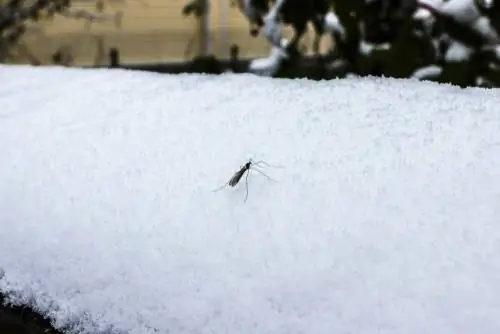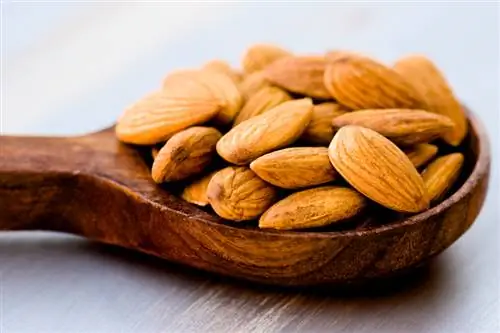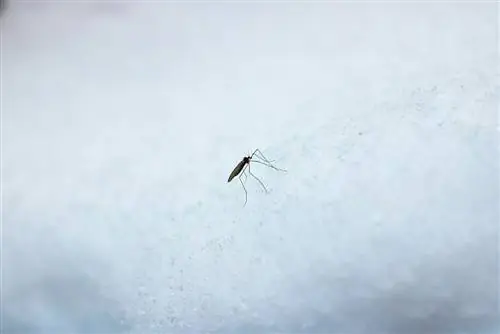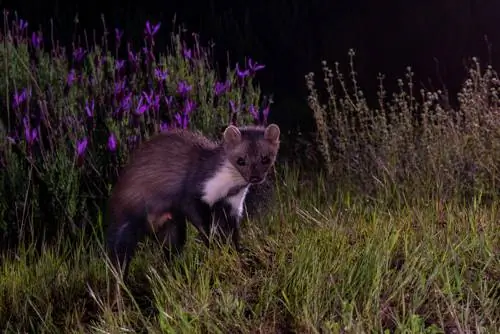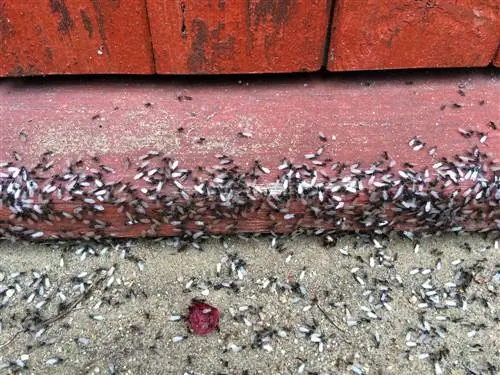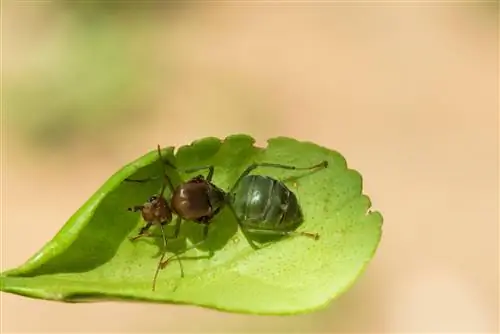- Author admin leonars@hobbygardeners.com.
- Public 2023-12-16 16:46.
- Last modified 2025-01-23 11:22.
Finally the days are getting cooler again and the mosquitoes are disappearing. Unfortunately, it's not that easy, because even in winter you are not completely safe from the bloodsuckers. Especially if an insect has found its way through your open window, it has the best conditions to survive the winter unscathed. These and other mosquito survival strategies that you will find on this page will definitely amaze you.
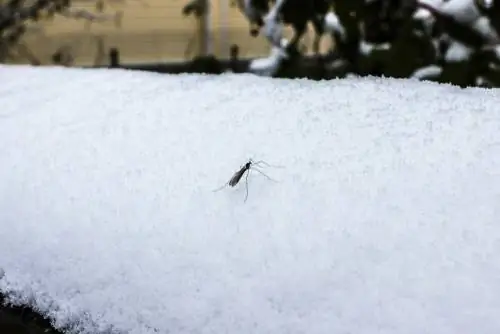
Can mosquitoes survive in winter?
Mosquitoes can survive in winter by finding protection from frost in water as larvae, or by overwintering as adults in frost-proof places such as cellars and apartments. Dark winter mosquito species absorb sun rays to keep warm.
There is a risk of getting bitten even in winter
Mosquito bites in winter? That is entirely possible. If a mosquito has found its way into your apartment, mosquito bites are almost more likely than in summer. At this time of year the insects' thirst for blood is particularly great. But why is that? Before the male mosquitoes die at the end of autumn, they mate with the females, who survive the winter. As with all animals, the breeding phase is very strenuous. As a result, the females have an increased protein requirement, which they cover with human blood.
Wintering strategies
Mosquito larvae and adults overwinter in different ways.
mosquito larvae
Before the onset of winter, females lay their eggs in water, mud or puddles. Here the hatching larvae find safe protection from frost and cold. The prerequisite for this is that the nesting site does not freeze over. Mild winters therefore favor a large population the following summer. The larvae usually dive below the surface of the water. They take in the necessary oxygen through a breathing tube that they build themselves.
Adult Animals
The adult females, on the other hand, seek frost-proof places such as:
- Basement
- Garages
- Livestock stables
- but also apartments
Here they fall into hibernation. Similar to the hibernation of some mammals, they consume more food in late summer. During the transition to cold, they excrete body fluid so that the body cannot freeze to death even in frost. Instead, they incorporate sugar into the metabolism, which serves as a natural antifreeze. Mosquitoes are also cold-blooded animals. As body temperature drops, organ activity decreases. This saves additional energy.
Survivalist winter mosquito
The winter mosquito has developed an even more effective overwintering strategy. If you look at the body of this type of mosquito, you will notice that it is completely dark. The black color, which also affects flights, serves a very special purpose: dark colors absorb light. You know this effect because you sweat more in black clothes in summer than in a white T-shirt. Mosquitoes absorb every single ray of sunlight to keep the body warm.
Did you know that it is not the climatic conditions in winter that determine the number of mosquitoes in summer. The conditions under which the brood hatches are relevant for a mosquito plague. Warm temperatures and a high rainfall rate in spring and early summer cause the population to explode.

